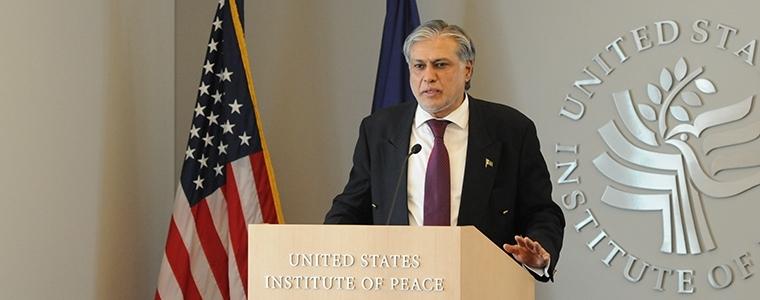Pakistan’s Economic Turnaround: What Basis for Peace?
A Conversation with Finance Minister Mohammad Ishaq Dar
Due to pressing domestic issues, Finance Minister Mohammad Ishaq Dar has cancelled his trip to the United States and unfortunately this event is cancelled.
For peace and stability in Pakistan and South Asia, Pakistan’s economy is a vital foundation. While Pakistan’s security challenges remain serious, much of the economy has stabilized in the past three years. Finance Minister Mohammad Ishaq Dar will speak at USIP October 6, just weeks after Pakistan’s first-ever completion of a support program with the International Monetary Fund. Pakistan’s government now says the new growth necessary to reduce unemployment will come partly through massive investment in a China-Pakistan Economic Corridor. Finance Minister Dar will address Pakistan’s economic reforms, its search for investment, and prospects for development and social change.

Reforms under the government of Prime Minister Nawaz Sharif have boosted economic growth. Still, the world’s sixth most-populous country faces the economic and long-term security imperative of providing jobs, especially for young adults, who form 30 percent of the population—a demographic “youth bulge” that is one of the world’s largest. And security problems, including violent extremism, threaten economic development and risk derailing Pakistan’s efforts toward rapprochement with its neighbors, including India. Mohammad Ishaq Dar has served as finance ministry throughout the current government’s term, and is a longtime leader within the governing Pakistan Muslim League (Nawaz). He will speak at USIP in a visit to Washington that will include the annual meetings of the World Bank and the International Monetary Fund. Join the conversation on Twitter with #USIPPakistan.
Speakers
Mohammad Ishaq Dar
Finance Minister of Pakistan
Moeed Yusuf, Moderator
Associate Vice President, Asia Center, U.S. Institute of Peace



